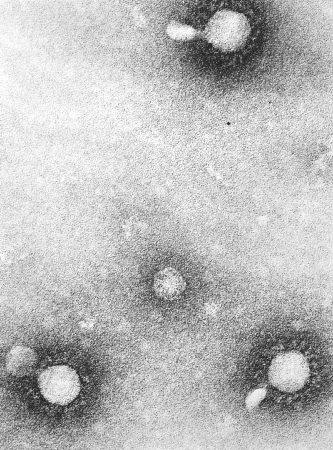Summary
Definition
History and exam
Key diagnostic factors
- presence of risk factors
- acute onset of fever
- headache
- myalgia
- arthralgia
Other diagnostic factors
- retro-orbital pain
- tachypnoea
- tachycardia
- chills
- altered mental status
- nausea/vomiting
- seizures
- gastrointestinal bleeding
- rhinorrhoea
- cough
- diarrhoea
- rash
- sore throat
- hemiparesis
- lethargy, drowsiness, or confusion
- paraesthesias
- ataxia/gait abnormalities
- behavioural abnormalities
- stupor, somnolence, or coma
- neck stiffness (nuchal rigidity)
- jaundice
- papilloedema
Risk factors
- living and/or working in or near tropical forests in Central or South America
- fishing in or near tropical forests in Central or South America
- age <15 years
- occupational exposure (laboratory)
- bioterrorism
Diagnostic investigations
1st investigations to order
- reverse transcription-polymerase chain reaction (RT-PCR)
- enzyme-linked immunosorbent assay (ELISA)
Investigations to consider
- plaque reduction neutralisation test (PRNT)
- viral isolation
- cerebrospinal fluid cell count, chemistries (glucose, protein), and viral isolation
- FBC (including haematocrit)
- LFTs
- chest x-ray
- head CT
- brain MRI
- rapid malaria antigen test or malaria smear
- electroencephalogram
Treatment algorithm
symptomatic patients
Contributors
Authors
Amy Vittor, MD, PhD
Assistant Professor
Division of Infectious Disease and Global Medicine
University of Florida
Gainesville
FL
Disclosures
AV is funded by the National Institute of Allergy and Infectious Diseases (NIAID) for work on host susceptibility and emerging alphaviruses (2016-2021); however, the funding supports new insights in the field only, it does not directly impact any articles produced. AV is a recipient of an NIH NIAID K08 award. AV is also the author of a reference cited in this topic.
Peer reviewers
Miguel G. Madariaga, MD, MSc, FACP
Infectious Diseases Consultant
Naples Community Hospital
Naples
FL
Disclosures
MGM declares that he has no competing interests.
Stalin Vilcarromero, MD
Research Physician
US Naval Medical Research Unit 6 (NAMRU-6)
Iquitos
Peru
Disclosures
SV declares that he has no competing interests.

Differentials
- Malaria infection
- Dengue fever
- Chikungunya virus
More DifferentialsGuidelines
- Management of suspected viral encephalitis in adults- Association of British Neurologists and British Infection Association national guidelines
- Management of suspected viral encephalitis in children- Association of British Neurologists and British Paediatric Allergy, Immunology and Infection Group national guidelines
More GuidelinesLog in or subscribe to access all of BMJ Best Practice
Use of this content is subject to our disclaimer